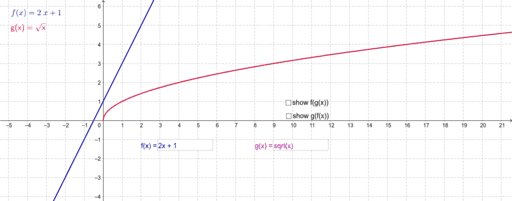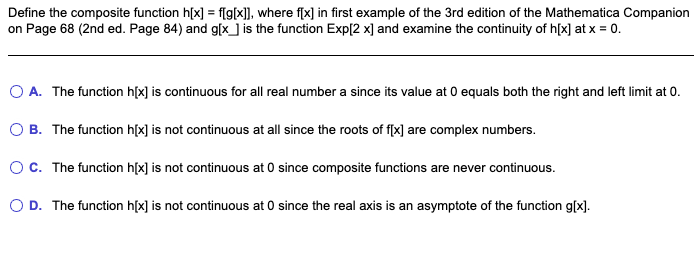


By the chain rule the temperature changes with time at a rate of & f(g(t)) = f'(g(t))g' (t) = degrees per hour. Hence f'(h) = Number The composite function f(g(t)) represents the temperature at time t. The temperature drops at a constant rate of degrees for every kilometer above sea level. g'(t) 30° 13 Now let f(h) represent the temperature at h kilometers above sea level. Algebraic as well as trigonometric, inverse trigonometric, exponential. Use the figures to evaluate each function given that f(x) sin x, g (x) cos x, and h(x) tan x. The calculator has two inputs: one for function f and a second one for function g. The notation means that the function is applied first and then is applied. Five operations are supported by this calculator: addition, subtraction, multiplication, division and composition. The gradient of the mountain is 30 degrees (I told you it was steep!) If g(t) represents the altitude (in kilometers) of the car at time t (in hours) then, using the triangle below, we can calculate the rate of change in altitude as g' (t) = 5 kilometers per hour. An online graphing calculator to carry out operations on functions. The functions f: X Y and g: Y Z can be composed by first applying f to an argument x and then applying g to the result. For example, suppose you drive a car up a steep mountain road at a constant speed of v = 10 kilometers per hour. A composite function, formed by the composition of one function on another, represents the application of the former to the result of the application of the latter to the argument of the composite.

It is not actually necessary to know an explicit formula for the functions f and g, only their derivatives are required. Transcribed image text: Remarkably, the chain rule allows you to calculate the derivative of the composite function f o g(x) = f(g(x)) as the product of the derivatives f'(g(x)) and g'(x).


 0 kommentar(er)
0 kommentar(er)
